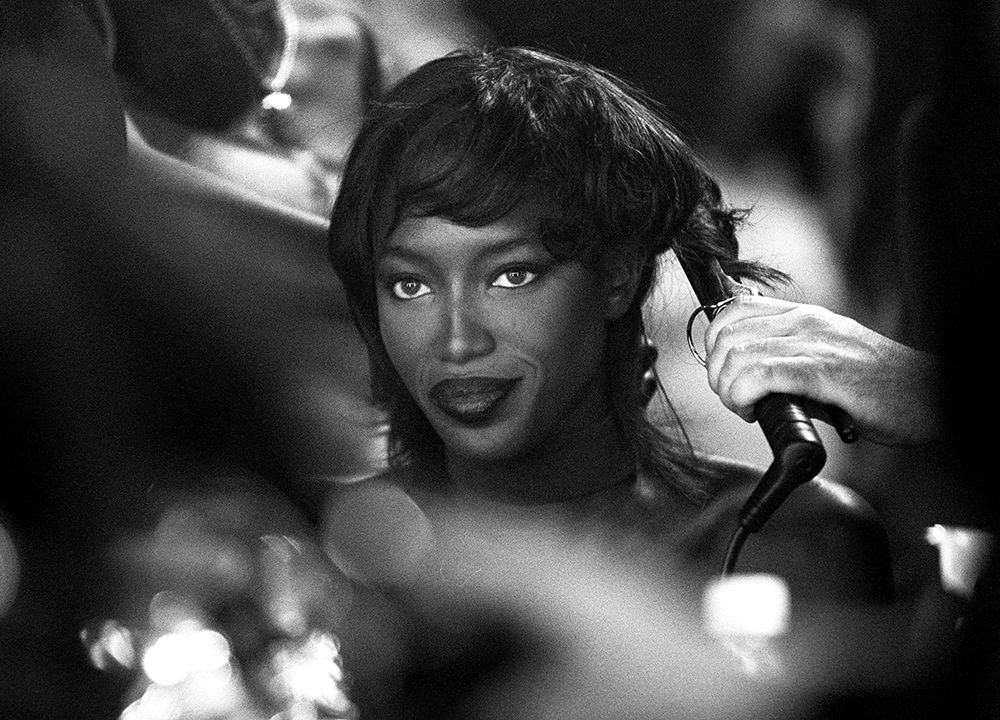Sometimes people come to you with an idea that's so obviously good, you're surprised no one's run with it yet. Carlissa and Laken King have that kind of idea. The identical twins and native New Yorkers are in the process of launching a doll company called Elle & Cee World Girls(look out for a Kickstarter soon). The dolls, if you couldn't tell by the name, are all about diversity and global identity, and—with traits like Defender, Explorer, and Innovator—giving kids something positive to play with. One of the most noticeable things about the dolls, though? They have really awesome hair—and it's something Carlissa and Laken feel particularly strong about. So they wrote us a note about it. Chime in below:
Hair consciousness came to us in high school. We hit 16 and started asking ourselves the questions we couldn't quite answer yet—we still might not be able to fully answer them. Why did we, as black girls, resort to perms, weaves, and hot combs? And why did the mainstream not care about our hair?
Our first experience with hair chemicals came when we were 10 years old. Laken had just seen The Princess Diaries and wanted an Anne Hathaway moment. The idea that a beauty team could make you over, use a few tools, and all of a sudden, you'd have smooth hair for life was tantalizing.
With enough complaining, our mother acquiesced. “Fine! I will take you to the same salon as your cousin! At least I know they will take care of your hair,” she said. There was a lot of pain, some tears, and a burned scalp in the process. So at 10 years old, it was the first and last time a salon-grade chemical would ever touch our hair.
As teenagers, we would walk around with our puffy, “wild” hair—pre-Anne Hathaway, if you will. Once or twice a month, we'd have our hair pressed (straightened with a hot comb, no chemicals) but no more than that. We played tennis, and keeping our hair in check was more hassle than it was worth. Combing it was the bane of our existence. And back then, we didn’t know anything about co-washing and leaving it as is, in its utmost natural state. Our mom would just have to spend a painstaking amount of time washing and blow-drying hair for two tender-headed babies.
Of course, if we were so miserable, why keep up the routine? For starters, everyone loved our straight hair. For the black community, our hair was the gold standard. It was long, shiny, and voluminous. We had that “good hair.” We’d get compliments from other black girls, our peers (girls and boys), and adults. We were placed high up on the hair pedestal, and we secretly did not want to come down.
Our community, and society at large, took our hair and infused this political, cultural, and social life into it, and all we wanted to do was put was oil and grease in it to keep it healthy. When Gabby Douglas took to the Olympic stage in 2012—and won multiple gold medals—it was still all about her hair. Should it be straight? Does it look bad? It broke our hearts. Do you not see that this young, black girl is accomplishing something that most of us will never accomplish in our lifetime? And instead of worrying about her gymnastics, she now had to address her hair?
Although it’s tough to admit, we’re still discovering and accepting our natural hair. It takes a lot of time to manage, but we're oiling it and washing it and finding the best natural products to keep it healthy. There’s something about putting in the work yourself to maintain natural hair. It transfers to the rest of your body in wanting to eat healthier, exercise more,and use the same oils that you use for your hair on your face and your body. You glow from inside out. So, yes, while our hair has taken on many lives—and will continue to do so—hair shouldn't control the person. You're in charge of your hair; wear it how you want to. It's taken a long time for us to get here, but we're now firm believers that our hair doesn't have to be curly or straight for us to be accepted.
There are some who believe hair is trivial, but hair is a choice—a conscious, unconscious, subconscious, historical, cultural choice. We love our hair both ways, and each way has its pros and cons. And sometimes, you just want to switch it up. Plain and simple.
So tell us: What's your hair journey? How do you wear it and why? All answers accepted.
—Carlissa and Laken King
Image via Getty. Does your hometown have a local beauty look?

